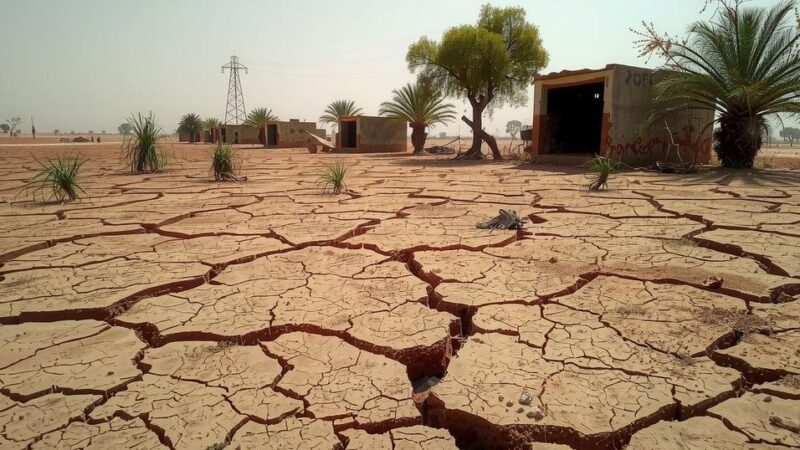Sudan’s gold trade, primarily channeled through the UAE, is integral to the ongoing conflict, enriching military factions and paramilitary groups. Despite economic devastation, record gold production is reported, exacerbating the war. While UAE officials deny allegations of smuggling, evidence and reports indicate a significant flow of gold from Sudan to the UAE through both legal and illicit means, contributing to the military efforts in the region.
Sudan’s gold industry has emerged as a vital component of its ongoing conflict, with nearly all transactions funneled through the United Arab Emirates (UAE), benefiting both the military and paramilitary forces, according to various sources. Despite a two-year war that has severely harmed the economy, the Sudanese government recently reported record gold output for 2024, highlighting the role of gold in sustaining the conflict.
The increasing demand for Sudan’s gold reserves has been identified as a significant factor exacerbating the war, as noted by economist Abdelazim al-Amawy. Marc Ummel, a researcher with Swissaid, emphasized the need to trace the gold’s journey to understand the situation, indicating, “To solve the war in Sudan, we have to follow the gold, and we arrive at the UAE.”
A UAE official dismissed allegations of involvement in gold smuggling, but reports suggest that almost all of Sudan’s gold, whether through legal or illicit channels, ends up in the UAE. The Sudan Mineral Resources Company recently announced a production increase, reaching 64 tonnes in 2024 with legal exports contributing significantly to government revenue, although nearly half is reportedly smuggled across borders.
Gold mines under the control of the Rapid Support Forces, located along Sudan’s borders with South Sudan and the Central African Republic, are alleged to contribute further to smuggling networks leading to Chad, South Sudan, and Egypt before reaching the UAE. Recent actions include Sudan filing a case against the UAE at the International Court of Justice, accusing it of complicity in genocide.
The Kush mine, a key site for Sudan’s gold production and owned by Dubai-based Emiral Resources, has resumed operations, producing substantial quantities of gold. According to the director of the Sudan Mineral Resources Company, 90% of legal gold exports are directed to the UAE, though the government seeks to diversify its trading partners.
In 2023, the UAE surpassed Britain to become the world’s second-largest gold exporter, and it has been identified as a major destination for smuggled gold from Africa. Despite claims of a responsible sourcing policy, evidence suggests that substantial quantities of imported gold are undeclared. Research indicates that smugglers continue to operate without effective hindrances in the UAE, fueling the conflict.
The RSF’s commander, Mohamed Hamdan Daglo, has leveraged control over gold resources to finance his military operations, and estimates suggest his wealth from gold-related activities is substantial. A former engineer provided detailed accounts of gold being transported through various routes to reach the UAE, underscoring the ongoing challenges in controlling the trade.
In summary, Sudan’s gold trade plays a crucial role in sustaining the ongoing conflict, with the UAE serving as a significant hub for both legal and illegal transactions. Reports highlight the intertwining of Sudan’s military efforts and its gold industry, coupled with allegations of complicity from the UAE. Notably, challenges remain in enforcing regulatory measures to curb the illicit gold trade. Through this complex landscape, it is evident that the gold market significantly influences the war’s dynamics and continuation.
Original Source: www.rfi.fr






